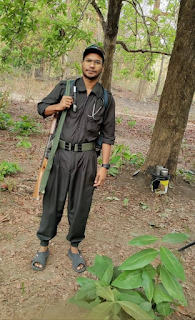Union Home Minister Amit Shah has described a recent counter-insurgency operation along the Chhattisgarh-Telangana border as a significant achievement for Indian security forces in their efforts against Maoist groups. The three-week-long operation in the Karreguttalu Hills reportedly resulted in the deaths of 31 individuals identified as members of Maoist formations.
“Achieving a historic breakthrough in the resolve of #NaxalFreeBharat, security forces killed 31 notorious naxalites in the biggest ever operation against Naxalism,” Shah posted on social media platform X, adding that the government is determined to eradicate Maoist activity by March 31, 2026.
The operation, carried out from April 21 to May 11, spanned rugged terrain in the Karegutta Hill region, involving multiple security units including the CRPF, STF, and DRG. According to officials, there were 21 encounters, and the Maoist leadership in the region was allegedly disbanded, with top leaders either killed, injured, or forced to disperse.
CRPF Director General GP Singh and Chhattisgarh Director General of Police Arun Dev Gautam confirmed at a press briefing that the deceased included 16 women and that the recovered weapons, IEDs, and supplies suggested a significant Maoist presence and preparedness in the area. Officials stated that the security forces suffered no casualties.
However, concerns have been raised by political figures and rights observers. Former Chhattisgarh Chief Minister Bhupesh Baghel questioned the transparency of the operation, citing inconsistencies in official statements and social media communications, and alleging limited attention to civilian impact in the conflict zone.
Local reports, including footage shared on social media, suggested the use of heavy artillery and air support, with some footage showing helicopters and flags being raised. Critics argue that such military-scale operations blur the line between internal security actions and warfare, especially if civilian populations are affected.
Among those killed was Dr. Ravi Bhaskar (photo), a rural medical practitioner who had reportedly joined the Maoist movement. For supporters of the Maoist cause, Dr. Bhaskar has become a symbol of commitment to socio-political change, while others view his death as part of the broader risks inherent in armed resistance.
Rights activists and independent observers have also highlighted longstanding grievances among tribal communities in central India, including displacement, lack of livelihood, and imprisonment without trial. These issues, they argue, contribute to continued unrest and support for Maoist groups in certain areas.
The situation remains complex. While the government views the operation as a decisive step towards eliminating insurgency, others caution against viewing it solely through a militaristic lens. Concerns about civil liberties, tribal welfare, and the root causes of unrest continue to be voiced.
As the region continues to grapple with the aftermath of this operation, differing narratives persist — ranging from a crackdown on insurgency to concerns of human rights and unresolved structural issues.
---
*Freelance journalist


Comments